"You're wired!" - 7 things The Apprentice can teach you about new media projects
I'd never watched The Apprentice until this year, when a procession of people we were staying with in London had it as unmissable 'appointment' television. I was immediately hooked, and once we got back to Greece, I had an unmissable 'appointment' to download the show as quickly as possible every Thursday morning, whilst trying to avoid 'spoilers' on the British media web.
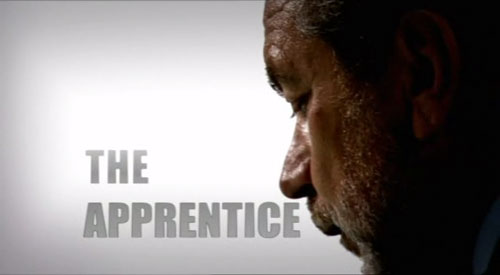
Throughout the series, I couldn't help thinking about the parallel lessons that could be drawn from the programme about the software and Internet industry. Just over a week after the final and I'm already missing the show, so I thought I'd share 7 things The Apprentice reminded me about my work in new media.
Salesman will do anything to get a sale.
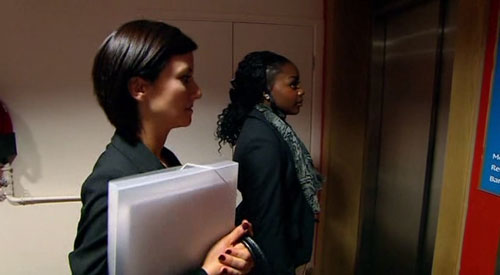
The clue, of course, is in the job title. The computer and software industry is full of some very nice and knowledgeable sales people who will always do their best to match the customers needs to the correct product. And it is also littered with people who will make any promise in order to clinch a deal. "Of course this software will be compatible with your current hardware architecture", they say, or "Yes, that feature will be included in version 1.1 which is shipping on time in a couple of weeks", or "No, we've never experienced any scalability problems".
I was reminded of this in the episode when the teams had to run an industrial laundry operation. Despite never having used any of the equipment before, nor appearing to have done any capacity planning, the sales teams were quite happy to knock on doors and promise restaurants and hotels "the best laundry service you have ever had"
Map and plan your processes
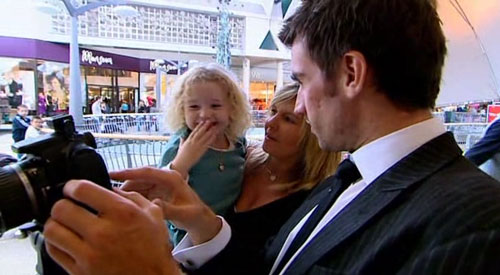
Another challenge for the teams was to set up a stall taking portrait photographs in the Bluewater shopping centre, and then process, print and sell the resulting photographs across a range of merchandise. Both teams encountered severe production problems, because neither of them appeared to have mapped their process properly.
One team was writing down the file names from the camera on their order forms, and then finding that these did not correspond to what they saw on screen when the pictures were uploaded to their computer. Another team found themselves unable to retrieve pictures from the memory cards onto their computers. Both teams lost hours worth of business and sales as a result.
The two problems would have easily been solved with a proper understanding of the process they were trying to achieve. It staggered me that the teams didn't simply regroup, take some test shots on the camera in the lab room, then upload them there and then to observe how the process worked, and find out what information was required to easily fulfill their orders.
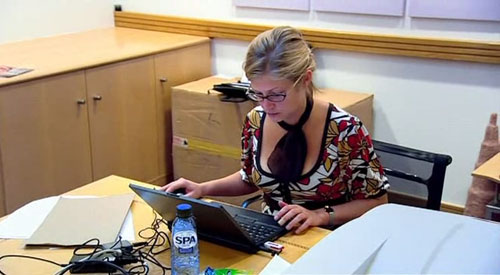
Now, I'm not suggesting that everything you ever want to do in business requires a 3D UML model made from Lego before you get started, although that, of course, would be cool.
What I am suggesting though, is that a quick sketch early in the day which helped the team understand the various inputs and outputs of the production line would have saved them a lot of trouble and enabled them to work more efficiently. And make more money.
Check the specification. Then check it again
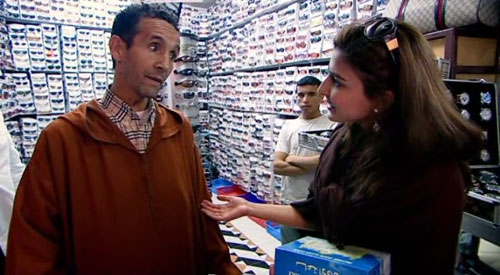
One of the episodes saw the teams in Morocco on a treasure hunt. Their task was to obtain ten items specified by Sir Alan, and to buy them at the cheapest price possible. It was a test of their attention to detail and their negotiating skills.
They were given the equivalent of a very clear product specification - a book with pictures and names for the items they were to obtain - and set off into the market. Once there, several of them started making purchases from memory, rather than referring to the specification document. One of the teams purchased a Mosque alarm clock in white, when the document stated it should be green. They subsequently wasted time and effort trying to get their white alarm clock changed to green - when if they had been referring directly to the specification, they would have got the correct colour the first time. When building software or websites, you always need to make sure you are building what the customer wants. [1]
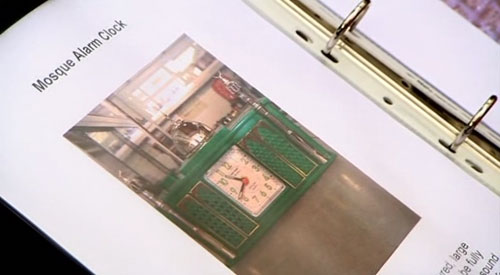
Use expertise when it is available
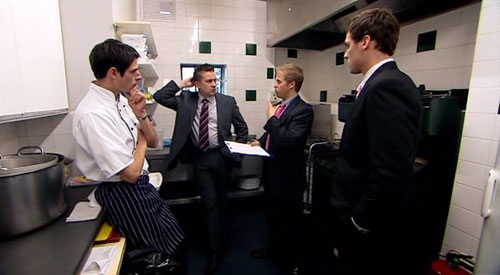
When the teams were assigned the job of producing a themed food night at a pub, they had on hand a food technician. They weren't there to do the cooking, but to help advise the teams on their menus and sourcing their ingredients. It was notable that the boys team paid hardly any attention to their assigned expert - and that is why they ended up with an Italian menu consisting of variations on an English interpretation of 'spag bol', and buying expensive ingredients at consumer prices from the supermarket. Unsurprisingly, the team lost the task.
Ignoring expertise is also lethal for developing new media products. The joy of working with a multi-disciplinary team is exactly that it is multi-disciplinary, and you need to use the expertise and strengths of each team member.
For example, I can program a bit of Perl and knock-up some HTML, and I am an advanced user of Photoshop. But, that doesn't mean I should ever produce the technical front-end or graphic design for any commercial product I'm working on. They are things that I can turn my hand to for my own projects, but they are not my professional expertise.
The best new media projects work well when you give information architects the space to organise things, graphic designers the space to design things, and software engineers the space to program things. Listen to your experts.
Observation is a key skill
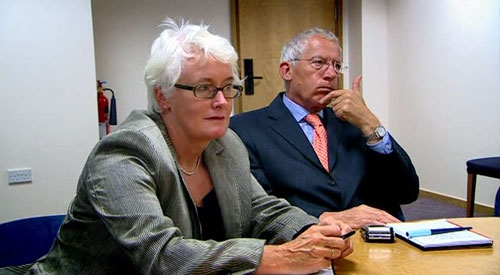
Sir Alan Sugar rightly takes top billing in The Apprentice as Britain's most belligerent boss, but very often the stars of an episode can be his two henchmen - Nick Hewer and Margaret Mountford. They don't get a great deal of on-screen time, but when they do, their insights are usually short, pithy and straight to the heart of the matter. Their key skill is observation, and it is a vital one for running any business project, whether it is in new media or not.
Observing the way that team members are interacting, and listening to the way people talk and what they have to say, are both vital skills in understanding what makes people tick, and how to get the best out of them during a project.
The Internet is a valuable business channel

I have to assume that it is in the rules of the show that the candidates have to be cut-off from the Internet. I can only assume that, because I couldn't believe that the web played no role in any of their tasks.
Despite having a team laptop, and being equipped with Internet-enabled Nokia N95, I didn't see any of the teams once use the Internet as a research tool to help them understand their costings or prices. Nor did it ever seem to be suggested as a possible marketing channel for their spontaneous business plans.
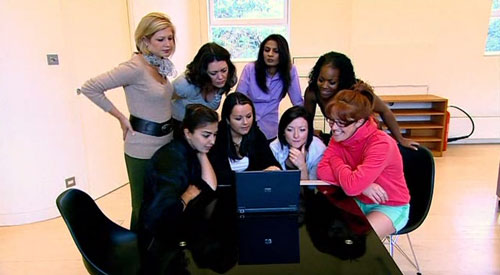
That might be a successful formula for making good television. However, a lot of costly mistakes made by the teams in their tasks could have been avoided if they had used the Internet to shop around for suppliers, do their basic research, or to work out their margins and ideal price points.
Have your product available for sale
"This is a joke. You've got people milling around willing to spend their money, and you didn't take their money?"
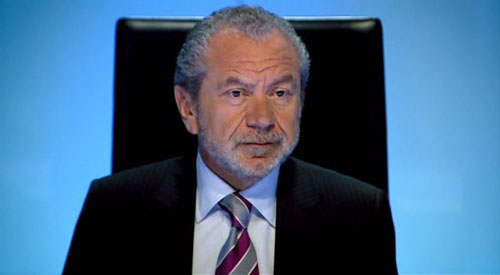
That was Sir Alan Sugar's reaction to hearing that production problems had caused one of the teams to have to stop selling during a task. The lesson here for me didn't so much come out of the programme itself, but from my experience of trying to watch it.
Without a doubt I would have handed over to the BBC between 99p and £2.99 per episode in order to quickly and easily download it from the official site. However, I am outside the UK and so excluded from the iPlayer, and there was no commercial alternative. Instead, I had to pay a couple of Euro to someone else to sit in an Internet Cafe with a big fat Internet connection and rely on P2P file-sharing as my means of transmission. Sir Alan would be horrified.
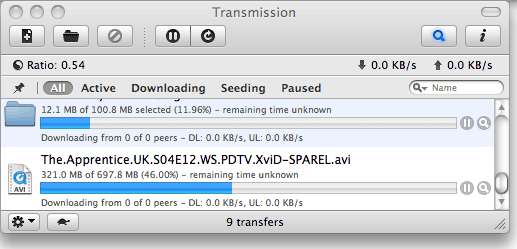
And finally...
There is plenty of web commentary that argues that the show isn't a good reflection of British business - the real talent is already out there making money, not appearing on a game show. I have to say that I was surprised during the course of the programme how many times these high-earning self-confessed 'winners' failed in their tasks due to some very basic fundamental business errors.
I don't think The Apprentice interview process is something I'd particularly want to go through myself, but it certainly makes for a compelling television series, and having missed out on series 1 to 3, I'm desperately hoping that there will be a series 5.
[1] Incidentally, the scene where one of the teams was scrabbling around Marrakesh market trying to find a Muslim butcher to bless a chicken to make it Kosher was one of the least edifying bits of race relations I've seen on British television for a long, long, long time. [Return to article]
Excellent commentary Martin. We don't often see this kind of analysis.
Please stop trying to learn business lessons from The Apprentice. You're spoiling the real point of the show: The schadenfreude of watching some A-type arseholes balls up.
Haha, interesting post here. I've been learning about business stuff lately, and personally, I've never watched The Apprentice before. I think I might just take a look at an episode or two and see how it is
Who knows... maybe I might really learn a thing or two... or i'll just end up liking it and just be entertained :p
I disagree with Rod. You can learn business lessons from the Apprentice, precisely because the people in the show make so many mistakes. That is a major reason why it is such compelling viewing. And it is achieved precisely by selecting the best candidates from a business perspective. From what I can see, the selection process is entirely media driven, and is interesting enough to merit a post all by itself. You have to get people who think they are the tops (or maybe are told that that is how they must present themselves on the show), but who exhibit a range of skills shortcomings and personality defects which are guaranteed to bring them into conflict with each other and cause them to mess up the tasks in interesting ways. Sadly, that does mean that the show doesn't cast young British business people in a great light. But it doesn't half make good TV.... Roll on the next series, starting anytime now!
I've followed the show religiously since its beginning and I've definitely learned a few good things. It is surprising to see business people who are so full of confidence to fail with simple things such as how to operate a digital camera? My mom knows how to operate one, if your going to do business in the 21st century you should at least have a grip on some basic technology (computers, internet etc the fundamentals of modern business). The other aspect that attributed to their failures is the lack of research they did, like you said Martin, they need to test and learn about the field they are moving into before trying to push it as a business.